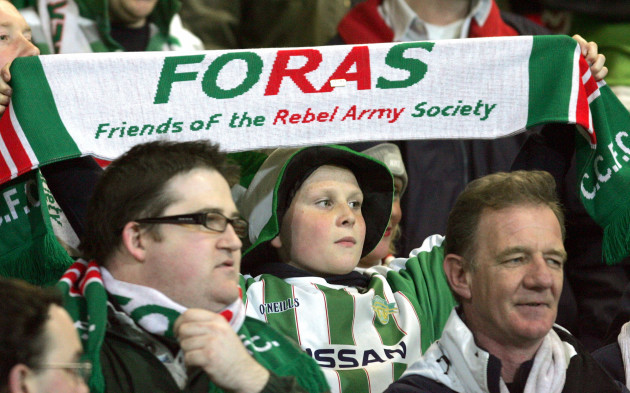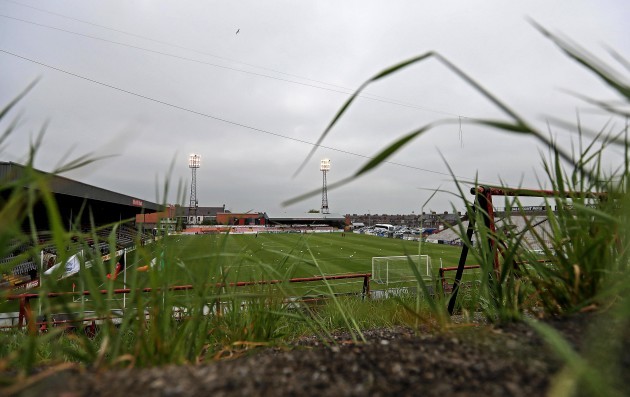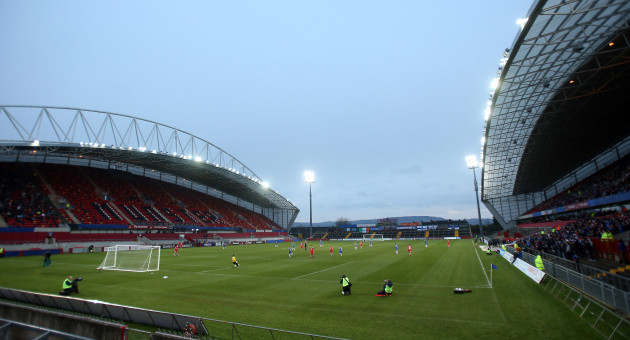LAST MONDAY MARKED the seventh anniversary of Cork City’s first game under supporter ownership.
Eleven days after being awarded a First Division licence in 2010, we travelled to Derry with 13 players and earned a famous draw in front of a massive travelling support. It was one of my best nights in football. After all the challenges, it felt like we’d done at least a few things right.
A week later I walked away from our first home game as a supporter-owned club with the opposite feeling. I felt we’d gotten the basics wrong. We’d lost to Waterford, had our captain red-carded and went behind to a questionable penalty, but none of that caused my unease.
The first home game was a fantastic occasion. Our story was an engrossing one. It captured the imagination and the build-up to the game was fantastic. We had over 4,400 people in Turner’s Cross that night — for a First Division game — with kick-off delayed due to the crowd. The income from 4,400 fans established a strong financial position for the season given our very modest budget. Yet I felt we’d screwed up.
About a half-hour before kick-off, with most of the key jobs done, I took a few minutes to stand back and watch the crowd streaming in. The buzz and the noise was incredible, but much of the noise was being generated by volunteers that I’d put in place. Supporters making their way into Turner’s Cross were greeted by a cordon of volunteers looking for money.
Before supporters could get up the steps from the gate of Turner’s Cross, they had people in their faces selling programmes, selling scarves, selling membership of the supporters’ trust and selling raffle tickets. We had 4,400 people who had just parted with money outside the ground for their tickets and their first experience of the new ownership was a club with their hands out, straight away, looking for more. I felt embarrassed.
Later I’d wonder how many of those who didn’t come back based it on their first impression of walking into the ground, rather than the result or the football. The initial experience when you walk into a stadium is vitally important and over my years working in football, my mind always went back to that opening night at Turner’s Cross. Consistently, we see infrastructure and comfort cited as reasons for low attendances at SSE Airtricity League grounds.
Doing simple things well is vitally important. A lick of paint, clearing up weeds and making sure seats are free of bird shit are simple fixes. Making sure your ticket sellers and volunteers are welcoming, smiling and helpful is essential, especially when dealing with away supporters.
Clubs in general don’t make enough of an effort to ensure the return of away supporters. When Limerick FC were in Thomond Park, we targeted that specifically and were successful. It helped, of course, that we had the venue to work from. We got it right pretty much straight away, with the visit of Shamrock Rovers to Thomond Park being viewed by those outside the club as our first big test.
Before the game, we published information on the website for visiting supporters and we drilled into our own volunteers that the first interaction that the Rovers fans would have would be with them; that our job was to make them welcome so they’d want to come back for the second game later that season.
On the night of the game I had lengthy discussions with the Gardaí, who had sent two public order units which would never be seen at a rugby match there. I eventually convinced them that their presence was antagonistic rather than helpful, and they agreed to stay out of sight.
We made sure the bar was open despite protestations, that people were friendly, that the food was decent and that security was friendly. Any cans or bottles of beer we confiscated — there was a surprisingly large amount — were held back and returned after the match. We ensured a stack of programmes was available at the away stand.
Chairman Pat O’Sullivan came over to mingle with the Rovers fans in the bar prior to kick-off and wish them good luck for the season. Despite having ‘experts’ telling us at every turn that our approach was wrong, we showed trust in the Rovers fans, ignored the rumours and guff about reputation. The trust was justified, as it would continue to be right through my time at Limerick.
I walked through the away section at half-time in that game on my way to the press box and was greeted by the late George Byrne, who had been at my table at the SFAI dinner a few months previously. He’d had a few and was enjoying himself. He thanked me for “not treating [Rovers fans] like animals” and leaving the bar open. We heard later that the Rovers AGM praised Limerick FC for their approach to the game.
It’s as simple as treating fellow supporters and away fans as you’d like to be treated, and trusted, yourself. If every Premier Division League of Ireland club added 100 away fans to each home game over the course of a season, they’d add over €20,000 to their income.



